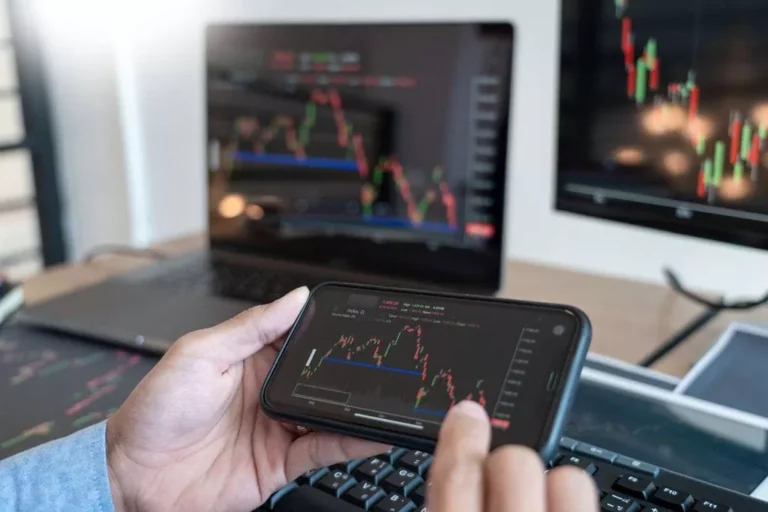Content
The main advantage of mutual and investment funds is that they allow for diversification across multiple asset classes, which can help mitigate risk. These funds also tend to be more accessible to retail traders, as they usually require lower capital investments. Due to their high-risk nature, hedge funds typically require substantial funds to invest. Their clients institutional stock trading are typically companies, pension funds, or other institutional investors. Institutional traders hold a significant amount of capital, which allows them to exert a greater influence on the stock market than retail traders.
Q: How do retail traders and institutional traders affect the stock market?
You need to have a solid trading plan and be able to execute it flawlessly. And you need to have a lot of patience because this isn’t a quick way to make https://www.xcritical.com/ money. Our content is packed with the essential knowledge that’s needed to help you to become a successful trader.
Definition and Scope of Institutional Trading Platforms

They trade in much larger volumes, often buying stock in bulk, a hundred or thousand times more than a Proof of personhood retail investor would trade. Many institutional investors and even fund managers use multiple investing strategies and approaches within an individual organization. In this guide, we will look at some of the most common (and successful) that you can use yourself. Many investors see market fluctuations as their opportunity to profit, eagerly anticipating quarterly reports for a stock price reshuffle. For institutional investors, however, these are minor changes and ultimately negligible in the long run.
Institutional Investing 101: How It Works, How to Track & How to Leverage It for Your Portfolio
When retail traders try to trade the same way as hedge fund does, they have little chance. Retail traders can compete with and even beat a hedge fund to think creatively and take advantage of all the benefits of being a retail trader. Retail traders do not have to worry about an inflow or outflow of capital that doesn’t benefit their portfolio.
Types of institutional investors
- They also follow petroleum products like oil, natural gas, and heating oil, which are highly affected by weather and geopolitical events.
- You need to have a solid trading plan and be able to execute it flawlessly.
- These traders have the ability to negotiate the best deal possible for such transactions compared to institutional investors.
- The most common type of institutional investor, mutual funds represent pooled funds from various individuals and organizations that are used to buy securities, usually equity, real estate, and private debt.
- As we’ve seen, hedge funds have big money, and with that money comes the ability to purchase the leading technology.
These rules cover important areas like who can trade, what information must be shared, and ongoing rules to follow. Traders also face strict rules, focusing on managing risks, reporting, and following market conduct rules. One must hold a bachelor’s degree and have several years of experience trading index and/or equity derivatives at a bank or trading company. Additionally, expertise in trading and position management around market flows is essential. By taking into account factors such as transaction size, access to resources, majority ownership, and liquidity concerns, you can better position yourself for success in the world of investing.
In the fixed-income market, big players like pension funds and insurance companies are key. They also use block trading to buy or sell lots of securities at once. One big plus for institutional traders is their access to advanced strategies and tech. Institutional traders use many advanced strategies to make money and manage risks.
Traders from the institutional sector use both technical and fundamental analysis tools to buy and sell stocks and other financial assets. The analysts on their team conduct thorough research and provide recommendations based on their research. Unlike institutional traders, retail traders usually trade blocks of currency through to the exchanges. Institutional trading refers to large-scale trades made by banks, hedge funds, and other financial institutions.
Some of the big institutional investors, such as Citigroup, train and hire fresh graduates. In case you wish to begin on your own, then starting as a retail trader is the best. It is worth pointing out that there is often a reason why regulations exist around these securities. High risk is often correlated with the chance for higher returns, but high-risk investments should always be considered with caution. If they make a trade that exceeds the level of risk they can handle, they may lose a large amount of their portfolio.
Hedge funds and other institutional traders use this capital to give them more bargaining power, which they can use to help them get lower execution costs, commission rebates, margin fees, etc. Institutions can complete trades at a lower cost than retail traders. A key component of its success is Aladdin, the company’s risk management platform, which many financial institutions frequently rely on. Pension funds also invest in a diverse range of assets but remain more constricted by their liquidity and risk standards.

You’re mistaken if you think retail traders are always shorthanded compared to institutional traders. New technologies, shifting investor needs, and rules updates drive these changes. They will use artificial intelligence, machine learning, and blockchain. Institutional trading platforms help small and medium-sized businesses, including start-ups, get into capital markets. They offer a way for companies to raise money, get noticed, and follow rules better.
Now, let’s delve deeper into the world of institutional trading and explore its key differences from retail trading. The impact of technology on institutional trading cannot be overstated. Institutional traders also hold a significant influence on the price dynamics of the market. Examples of institutional trading include algorithmic trading, high-frequency trading (HFT), and block trading. For example, if a large institution suddenly sells off a significant portion of its holdings in a particular security, it could trigger panic selling among other investors and cause prices to plummet.
The user experience will also become more intuitive and streamlined, focusing on data visualization and decision-support tools. Unlike their retail counterparts, institutional trading platforms are tailored to the specific needs of professional traders and portfolio managers. They provide access to a wide range of asset classes, including stocks, bonds, derivatives, and even alternative investments, all through a single, streamlined interface. Retail traders can learn to trade like institutional traders by gaining knowledge about market structure, financial instruments, and trading strategies. They can also benefit from using advanced trading platforms, keeping track of market news, and developing a solid risk management plan. Joining trading communities and attending webinars or workshops can also help improve their trading skills.
Retail traders get the idea that if they really leverage up their trades they can turn something like $500 into $100,000 quickly. It is doubtful that a new retail trader has the skills and training necessary to pull that off. They typically leverage up without considering that they might just lose their $500 much faster with more leverage. The institutional traders have zero or minimal involvement when it comes to the Initial Public Offers.
This can create opportunities for individual investors to profit if they are able to anticipate these movements. And, of course, you can also join our Trading Academy and meet our trading coaches, who have vast experience in the financial sector and capital markets. SMC posits that institutional players, the “smart money,” leave subtle footprints on the charts, revealing their entry and exit points. So, it’s about understanding supply and demand zones, order flow patterns, and market structure shifts to identify where the big boys are placing their bets.
In the financial markets, there are big differences between institutional and retail traders. They have different ways of trading, rules to follow, and how they affect the market. Knowing these differences helps us understand the investment world better. Institutional trading is when big companies buy and sell financial assets. They have teams of analysts and traders who work together to make smart trades. Institutional trading involves buying and selling financial assets on behalf of institutions, such as big funds or investment banks.